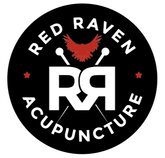and you want to know some things before you start...That's what I'm here for! This FAQ will answer all the questions you may have about how to start. Let's just jump right in:
Hopefully these answered some of the questions and concerns you may have about acupuncture. Please feel free to leave comments and ask any other questions you may have. Also, look for another FAQ about the basics of Chinese Medicine techniques and theory for all you health geeks out there. Stay healthy, friends!
0 Comments
|
Details
Bret Kyle Rogers, L.Ac.Texas based acupuncturist, qigong teacher, and herbalist demystifying Chinese medicine. The author frequently links to Amazon.com for specific products. As an Amazon Associate I earn from qualifying purchases and appreciate your business! Archives
April 2023
Categorieshome about services contact links blog |
 RSS Feed
RSS Feed
